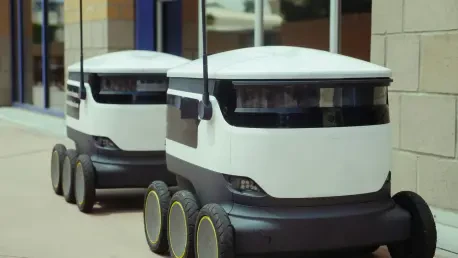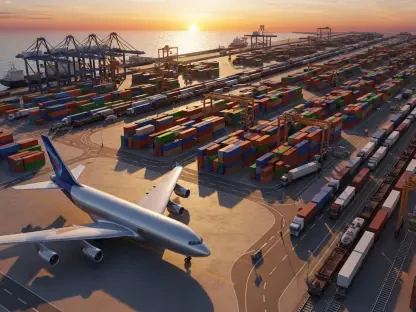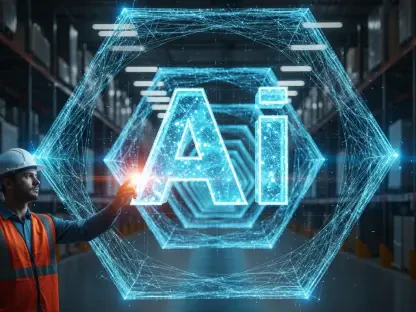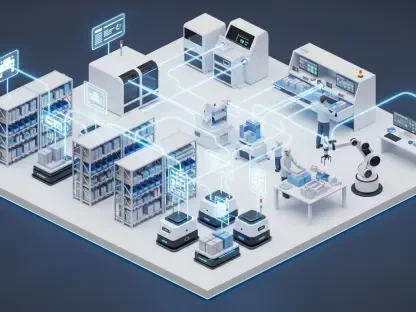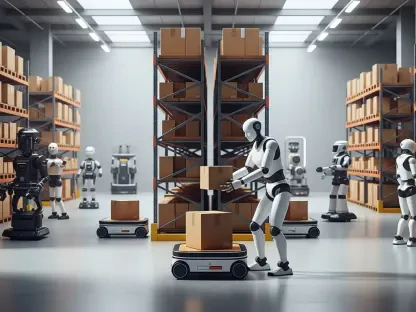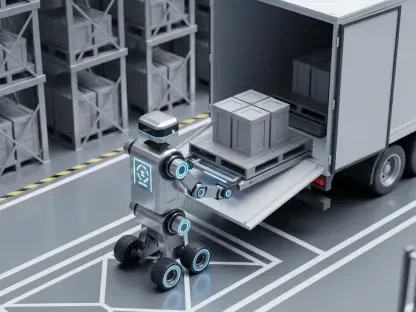The transportation industry is poised on the brink of a technological revolution, with autonomous agents at its forefront. As companies seek to tackle growing complexities linked to decreasing fulfillment times and rising cost efficiencies, these intelligent systems promise significant transformation. The journey toward automation is replete with opportunities and challenges, promising a shift that many sectors, including manufacturing, retail, and logistics, are gearing up to embrace. This market analysis delves into the impactful changes expected within the transportation sector as autonomous agent integration advances.
Navigating the Transition to Autonomy in Modern Transportation
In today’s complex transportation landscape, enhancing operational visibility and efficiency remains a top priority. This focus underpins the widespread attention currently directed toward autonomous agents—sophisticated AI systems that can independently achieve designated goals. The market’s current emphasis on reducing transportation costs and improving customer satisfaction through accurate and timely updates underscores the vital role these systems are expected to play. However, while about 61% of companies foresee wide implementation within the next five years, only a fraction have fully integrated AI solutions into their current systems, indicating a significant gap between potential and actual utilization.
The impetus for a fully autonomous transportation system is also driven by sustainability considerations. As nearly 69% of organizations face mounting pressure to comply with evolving environmental policies, there is an increased demand for real-time tracking and compliance solutions. Advanced AI technologies, when combined with sustainability initiatives, provide not only the means for profound environmental impact reductions but also for maintaining operational efficiencies.
Broader Market Dynamics: Local Versus Global Adoption
The adoption of autonomous agents does not occur uniformly across the globe, indicating diverse market responses shaped by regional nuances and regulatory landscapes. Steady technological uptake, observed in North America, contrasts dramatically with slower implementation in regions where infrastructure development poses significant barriers. Yet, the promise of cost efficiencies motivates global interest, urging companies to customize approaches according to local dynamics and anticipate potential regulatory shifts.
Meanwhile, as electric autonomous vehicles emerge, companies are navigating discrepancies in readiness levels to market disruptive innovations effectively. Strategic anticipation around these innovations offers the potential for profound organizational shifts and proactive global market integration.
Projections and Strategic Recommendations
Projections for the transportation industry indicate a future characterized by increased sophistication in artificial intelligence paired with evolving economic and regulatory landscapes. By leveraging machine learning and predictive analytics, autonomous systems will likely transform logistics, catalyzing cost savings and strategic advantages. Anticipating shifts in regulatory frameworks, including those pertaining to data privacy, will be crucial in shaping strategic implementation plans.
Companies aiming to exploit these technological advancements should consider reevaluating their AI integration strategies, investing in workforce skill enhancements, and establishing sound data infrastructures. Moreover, adopting predictive modeling tools will position companies to harness historical trends, maximizing real-time decision-making effectiveness. For consumers, a shift towards advocating for environmentally sustainable practices remains paramount, with autonomous agents positioned to significantly advance green transportation initiatives.
Evolving the Landscape: Opportunities and Considerations
The journey toward transportation transformation through autonomous agents is both complex and promising. The findings imply an urgent need for companies to adapt, leveraging proactive strategies to maintain competitiveness and ensure customer satisfaction. Organizations equipped to handle the dynamic demands of AI advancements and sustainability mandates will position themselves at the forefront of industry progress. Such adaptations are essential, not only to bolster market positions but also to ensure long-term organizational viability.
Reflecting on these projections, businesses must act strategically to embrace emerging opportunities, potentially achieving significant advancements in operational efficiencies, reduced environmental impacts, and sustained competitive advantages. The comprehensive shift toward automation clearly marks a pivotal era in transportation evolution, warranting proactive engagement and bold innovation across industries.
